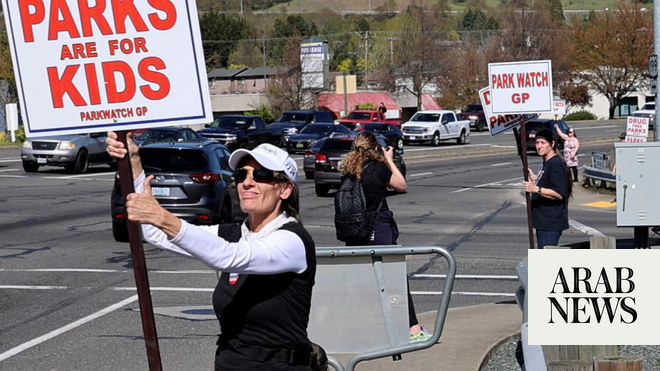
The US supreme court has upheld a federal ban preventing anyone placed under a domestic violence restraining order from possessing a gun.
The ruling in US v Rahimi, supported by eight justices to one, with Clarence Thomas dissenting, will leave in place legal protections against a major source of gun violence in America.
Writing the opinion, the chief justice, John Roberts, said that individuals can be temporarily disarmed if they pose a “credible threat to the physical safety of another” without violating the second amendment to the constitution that allows the right to bear arms.
“Since the founding, the nation’s firearm laws have included regulations to stop individuals who threaten physical harm to others from misusing firearms,” he wrote.
The judgment will come as a relief to gun control advocates who had feared that the ability to disarm dangerous people might fall prey to the radical interpretation of the second amendment advanced by the court’s conservative supermajority.
Merrick Garland, the US attorney general, welcomed the ruling as confirmation that “commonsense prohibition is entirely consistent” with the second amendment, adding that the justice department would “continue to enforce this important statute”.
Gun control groups and individual victims of domestic violence shootings also expressed relief.
La’Shea Cretain, a fellow with Everytown for Gun Safety who was herself shot by her former boyfriend in front of her young children and recovered from a coma, said the Rahimi ruling “means fewer children will witness their mothers, sisters, aunts and friends experience gun violence at the hands of abusers, like mine did”.
Stakes in the Rahimi case were high, given the vast toll from armed domestic violence abusers. As the US solicitor general, Elizabeth Prelogar, pointed out in oral arguments in November, “a woman who lives in a house with a domestic abuser is five times more likely to be murdered if he has access to a gun”.
Kelly Roskam, director of law and policy at the Johns Hopkins Center for Gun Violence Solutions, responded after the ruling was delivered by saying it was in tune with clear research findings. “Armed domestic abusers are dangerous to their intimate partners, family, friends, law enforcement, and the broader community,” Roskam said.
The decision from the chief justice comes as a rebuke to the fifth circuit court of appeals which had previously ruled that the ban on gun possession for those under domestic violence restraining orders was unconstitutional.
The fifth circuit is the most hard-right appeals court in the country, and has been the crucible of several aggressive cases that have come before the supreme court, including the recent mifepristone case in which the justices also sided against the appeals court to uphold access to the abortion pill.
Six of the 17 judges on the fifth circuit were appointed by Donald Trump.
The Rahimi decision also sees the country’s most powerful court stepping back by a degree from the hardline vision of open access to guns that it had laid out two years ago in the landmark ruling New York State Rifle and Pistol Association v Bruen. In that case, the six conservative justices allowed handguns to be carried in public in most instances.
They said that any restrictions on ownership had to conform to the “history and tradition” of firearms regulations stretching back to the 18th century. Gun control groups feared that the ruling might be used to unravel America’s already lax regulations, with potentially disastrous consequences.
Now Roberts has clarified Bruen, smoothing down some of its roughest edges. He commented archly in his decision that “some courts have misunderstood the methodology of our recent second amendment cases. These precedents were not meant to suggest a law trapped in amber.”
The Rahimi case focused on a drug dealer, Zackey Rahimi, who was placed under a restraining order after he abused his girlfriend in a parking lot in Texas and shot at a bystander. He was alleged to have been involved in five further shootings before he was arrested and found to have guns in his house in a breach of the ban on anyone under a domestic violence restraining order possessing firearms.
Rahimi challenged the ban as unconstitutional, and won the backing of the fifth circuit court of appeal, prompting the case that has now been adjudicated by the supreme court.
In his opinion, Roberts framed the decision to continue the ban on gun possession by those under a domestic violence order as “common sense”. He wrote: “When an individual poses a clear threat of physical violence to another, the threatening individual may be disarmed.”
He added that such a view “fits within the nation’s regulatory tradition”.
Thomas made clear his displeasure with his eight peers on the court by issuing a 32-page dissent. In it he restated the formula laid out by him and his fellow hard-right justices that gun prohibitions could only be constitutional under the second amendment if they are “consistent with the nation’s historical tradition of firearm regulation”.
“Not a single historical regulation justifies the statute at issue,” he complained.












